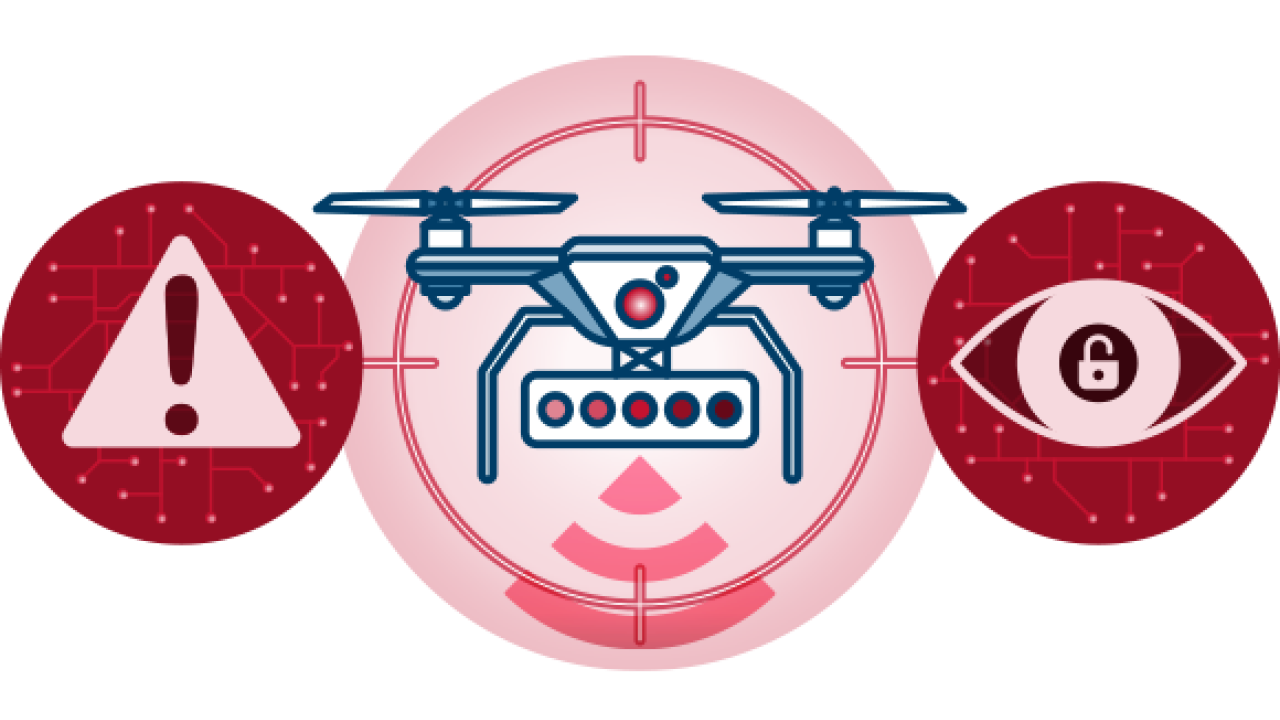
Be Air Aware™
What is Be Air Aware™?
CISA’s Be Air Aware™ program helps increase awareness of cyber and physical risks posed by unmanned aircraft systems (UAS or drones). The Be Air Aware™ materials on this page provide essential, ready-to-use information about UAS threats and steps to effectively manage risk to critical infrastructure and public gatherings.
How Can You Be Air Aware™?
Discover CISA’s resources below on the physical and cyber risks posed by UAS.
Protect Critical Infrastructure and Public Gatherings
Discover how to recognize UAS threats and determine mitigation and response options.

UAS Cybersecurity
Discover how to identify and mitigate UAS cybersecurity risks and practice cyber hygiene principles.
Featured Content
Cybersecurity Guidance: Chinese-Manufactured UAS
Raises awareness on the threats posed by Chinese-manufactured UAS and provides UAS cybersecurity recommendations that reduce risks to networks and sensitive information.
Secure Your Drone: Privacy and Data Protection Guidance
Provides guidance for drone users to protect their data and privacy before, during, and after flying their drone.
Unauthorized Drone Activity Over Sporting Venues
Presents options for sporting venue owners and operators to consider to prevent, protect from, and respond to unauthorized drone activity.
Contact Us
For more information, please send an email to sUASsecurity@mail.cisa.dhs.gov.




